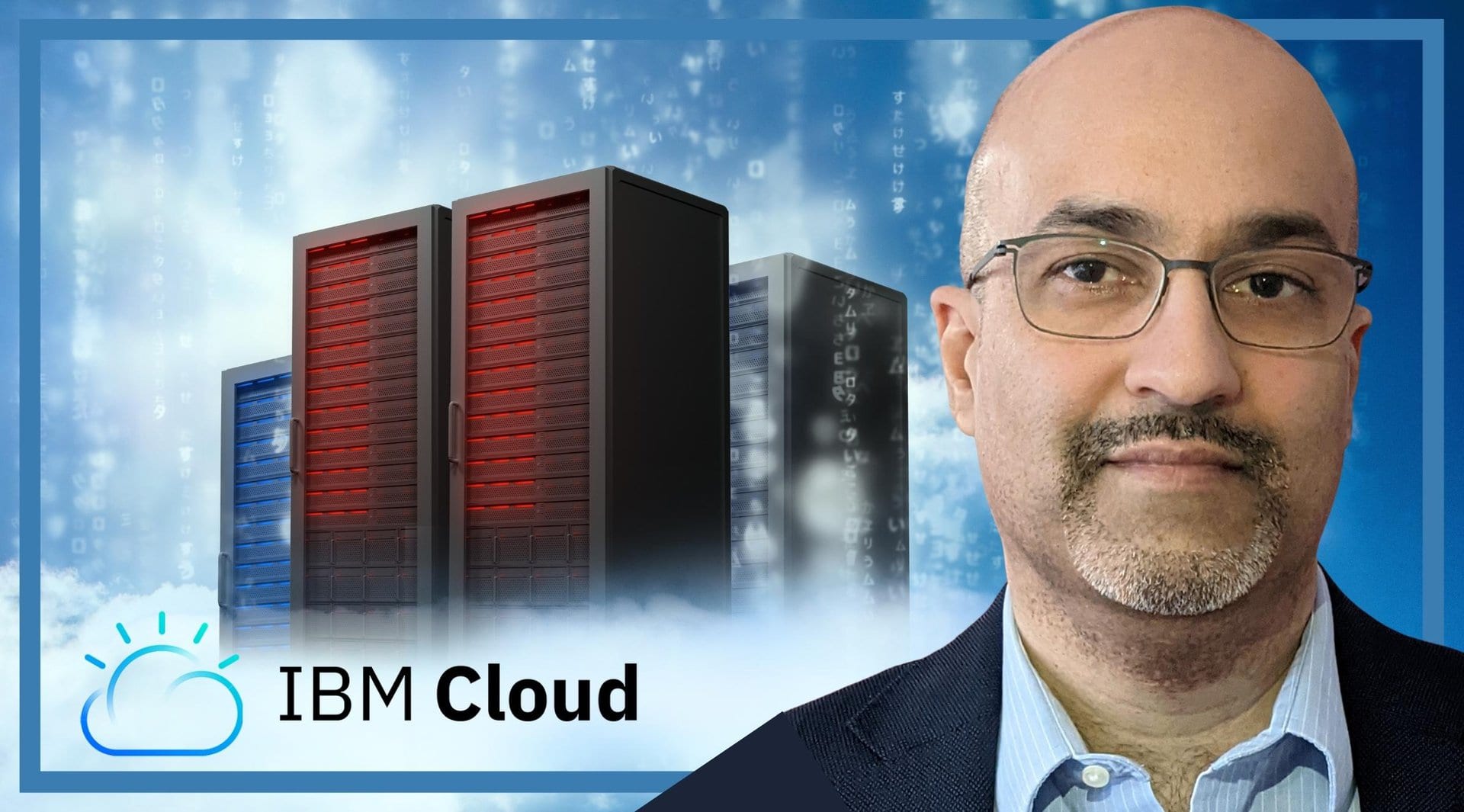Earlier in the summer, we reported that Volante Technologies and SIA reach an agreement to collaborate with the aim of enabling banks, financial institutions and payment service providers to access instant payments. Making use of Volante’s cloud technology, this partnership was formed with in the hope of speeding up the adoption of digital payments in Europe. It is just one example of how cloud providers, and cloud-based technologies, are playing an increasingly prominent role in the FinTech space.
It is therefore unsurprising that this topic – the contribution cloud technologies can make to innovation in FinTech – was discussed widely at the recent Money 20/20 conference in Amsterdam. One company deeply involved in such technology is Feedzai, a cloud platform designed to fight financial crime using artificial intelligence (AI), big data and machine learning. We sat down with Feedzai’s Chief Marketing Officer Varun Kohli to discuss the ever-increasing importance of the cloud in the FinTech industry.
Today @money2020 we spoke to @feedzai about their #cloud platform, #AI and managing financial risk. #Money2020EU pic.twitter.com/0EI6WlW4xo
— #DisruptionBanking (@DisruptionBank) September 23, 2021
Feedzai helps clients manage risk in a number of ways. Every day, trillions of dollars’ worth of transactions pass through the Feedzai platform, with AI tools and machine learning engines scoring each transaction depending on its risk; making the company “the largest cloud platform that helps customers manage their risk.” Customers can build their own platform in different ways, constructing different models that increase the likelihood of any fraudulent activity being detected whilst minimising friction for the customer. The platform also covers all kinds of financial risk, including ALM, and can help with watchlist management. Feedzai is cloud-agnostic, meaning that customers can host the platform in their own cloud if they wish. If not, “the choices they have are the usual ones – AWS, Azure, GCP. Some will run on their stack but others, like AWS, will run on ours.”
Of course, financial crime and fraudulent activity is a risk faced by any business. In this sense, Feedzai’s platform undoubtedly has a wide applicability, something that is reflected in some impressive numbers: Feedzai serves companies with over 800 million customers worldwide, covers 80% of Fortune 500 companies, and monitors $9 billion in transactions for two athletic brands alone. We asked Varun, however, where Feedzai’s services are best placed and if there is a particular space where cloud-based risk management is especially important:
“I think we can add particular value for financial instiutitions. These institutions are very good with financial management, and drop risk in the middle. So what we can help them do is with financial risk management. We look for any instances when something is going wrong, or is about to go wrong. It could be fraud, it could be money laundering, it could be regulatory and compliance issues; it could be prevention of crime, detection of crime, or remediation of crime. We give them complete visibility and flexibility on that front, to help with all things related to financial risk management.”
We’re excited to share the news that Revelock is getting acquired by @Feedzai! Read our CEO’s blog to learn how – by joining forces – the two companies are stepping up the fight against financial crime in this era of cashless commerce #behavioralbiometricshttps://t.co/jpQgUo5qKm
— Revelock · A Feedzai Company (@RevelockFDR) August 4, 2021
Varun also touched on Feedzai’s recent acquisition of Revelock, a biometric-based fraud prevention platform. This acquisition followed a $200 million round of investment earlier in the year, and creates what Revelock have described as “the world’s largest AI-powered financial risk management platform with native, integrated behavioural biometrics.” As Varun outlined, Feedzai is therefore able to leverage a huge amount of data, of various types, in order to create a “financial intelligence network” that can spot and prevent crime in real-time:
“We just acquired the world’s largest biometric company and this makes us the largest financial intelligence network in the world. That network has users, sessions and transactions and a range of information that is leveraged.
“How does that help you today as a consumer? When you’re accessing your bank account, you’re worried about two things. The first is security and the second is convenience and the customer experience.
“With this acquisition we can now do these kind of things: say you are based in the UK, all of a sudden I see that you’re logging in from America. You generally use an iPhone, now you’re logging in on an Android and this Android actually has malware on it. You usually use your right hand to access your bank account, but this time you’re using a left hand. These are all signs that something bad is about to happen. So even if nothing has yet happened, the technologies we have mean that we can predict something bad is about to happen and block that.”
U.S. tech giants Google, Microsoft and IBM had AI technologies curbed by panels of executives or other leaders, according to AI ethics chiefs. It reflects a nascent drive to balance lucrative AI systems with consideration for social responsibility https://t.co/fYA6gzaiOe pic.twitter.com/SqEKSBGi9B
— Reuters Business (@ReutersBiz) September 8, 2021
As we also discussed with Temenos at Money 20/20, we asked Feedzai about the ethical issues implicated with AI technology. When companies are using technology to process large amounts of data, there is the danger that such technology will reflect prejudices and biases. Just last September, Google’s cloud unit looked into how AI might be able to help financial firms decide to whom they should lend money, but found that the project was too risky on ethical grounds because the technology was perpetuating prejudices surrounding race and gender. We asked Varun if and how Feedzai’s platform avoids such stereotyping:
“We call it “Responsible AI.” What’s meant by that is that there are four different criteria to ensure responsibility: you have fairness, accountability, transparency and ethics. If a couple residing together, jointly filing taxes, applies for a credit card, there is the danger that the decision may be made based on their gender, ethnicity or where they live. That’s not what we want in the system.
“So we look at transactional information, user information and device information. Everything that they have done in the digital world. Every human-computer interaction is looked at to make a decision on every session and every transaction – and we can do it faster than a human eye, in three milliseconds.
“[To avoid any prejudice], what we do once we apply machine learning is create a model comprising of different parameters. Customers can pick from multiple models to block fraud but we help our customers to choose the model that is the most effective and least biased.
“You can always be super-restrictive, turn the dial right up and prevent 100% of fraud by being super-biased – but that’s a lawsuit waiting to happen. We don’t want our customers to be using models that are biased, so we give them complete visibility and explain what the effect of changing the parameters might be.”
What real-world scenarios would you like to use #ResponsibleAI? Do you know how to run an AI bias audit notebook? Join this engaging webinar to learn how AI bias gets into your system and how to build a more inclusive system with Responsible AI.https://t.co/VOcVP2MzJk pic.twitter.com/IMkVJ42ivs
— Feedzai (@feedzai) May 19, 2021
Varun argued that one of the major benefits of Feedzai’s cloud platform is that it frees financial institutions from “focusing on the bad guys” and allows them to focus on the customer and growing their business. This is perhaps particularly important for start-ups and challenger banks, which both tend to lack the capacity of traditional institutions to dedicate sufficient resources on compliance and fraud-detection, and understandably wish to focus more on the client experience because this is where they can add the most value. Hence a multi-year partnership that Feedzai recently announced at Money 20/20 with Solarisbank, a German FinTech that offers a Banking-as-a-Service (BaaS) platform. As Varun told us:
“We sell to all kinds of financial institutions, including both traditional and challenger banks. To give an example, we just launched our partnership with Solarisbank. They wanted to go to market rather quickly, and chose to partner with us because we are the best in class for financial risk management.
Big news from @money2020! Fintech unicorns Feedzai and @Solarisbank have announced a multi-year partnership that promises to reshape financial services and democratize banking access across the EU. Learn more about this exciting collaboration!https://t.co/DnmVPDT2fQ pic.twitter.com/jJopYA2qy9
— Feedzai (@feedzai) September 22, 2021
“We also work with acquirers, companies like Visa, as well as processors. Finally, we work with merchants. Think of the two most valuable athletic brands on the planet. Somebody is trying to buy shoes online, but someone else is trying to launch a bot account on your website and trying to get rid of $3 million in inventory by the time the weekend is over. You want to automatically manage this; you want to focus on the customer and not on the bad guys. We focus on customer experience and risk management, and get the balance right for our customers.”
Cloud technology is clearly now a key component in the infrastructure of FinTech companies; not just in security and risk management but for all areas of banking involved in the use of data. As PwC argued in a report last year, FinTech companies are increasingly embracing the cloud as a means to achieve scalability and growth. Already at least 22% of all applications run on the cloud because of its reliability, speed, and the benefits it can bring to the customer experience. No surprise that Kathryn Van Nuys of AWS “can’t think of a FinTech, that’s starting today, that isn’t cloud-native.”
As the FinTech space continues to develop, the cloud will continue to be the bedrock of innovative companies and all those seeking to use data to improve the customer experience.
Author: Harry Clynch
#Cloud #FinTech #FinancialCrime #BigData #MachineLearning #ALM #Biometrics #FinancialRisk #ResponsibleAI #Compliance #FraudDetection















